Students and teachers say Temecula’s far-right school board endangers free speech as well as their safety.
Photos by Barbara Davidson
During her time as a student in the Temecula Valley Unified School District, Brooklyn Anderson has been a cheerleader, a member of student government and president of the Black Student Union. And every step of the way she says she has endured racism from students and teachers alike, and watched fellow students being taunted by homophobic bullies.
For her, life at Chaparral High School has only declined further since the election of three far-right members to the school board.
“I didn’t really notice that so many of my peers’ parents thought certain ways until the school board came in,” the 17-year-old senior said outside of her high school.
When the school’s new conservative majority banned Critical Race Theory and any open discussion of racism in the classroom — just two of the many divisive policies the board enacted — Anderson and her friend Genesis Kekoa coordinated with the local high schools’ student bodies and organized a walkout in protest. Following the walkout, California Superintendent of Schools Tony Thurmond met with Anderson and members of the BSU and offered his support. Anderson and her club’s adviser, Dianne Cox, also reached out to meet with the newly elected board members.
The meetings never happened.
Since the election of Joseph Komrosky, Jen Wiersma and Danny Gonzalez, teachers and students alike said there has been a chill in the classrooms of Temecula – teachers afraid to answer tough questions from their pupils for fear of being suspended, students unsure whether they can still confide in their teachers and instructors considering whether to quit their jobs and leave the district, all while name-calling and threats abound on campus and at board meetings.
“You’re now starting to have PTSD in the classroom,” said Amy Eytchison, a fourth grade teacher and 26-year veteran of Temecula Unified. A lawsuit against the school board and the district states a student has sought mental health care following the passage of the new policies in August.
All three of the newly elected school board members were contacted for this story but did not respond to a request for comment.

In addition to the CRT ban, the board’s rapid-fire edicts included a ban of all flags — including the Pride and Black Lives Matters banners — except the American and state flag; a policy requiring teachers to tell parents if their child is transgender or using new pronouns; and an aborted effort to remove the name of Harvey Milk, California’s first openly gay politician, from a social studies curriculum.
The CRT ban forbids any classroom discussion of several basic pillars of anti-racism, including “racism is racial prejudice plus power” and “the incentive to move away from racist policies depends primarily on the self-interest of the oppressor class.”
Cox, who in 1998 became the first Black woman hired to teach at Chaparral High, said that as a woman raised by sharecropper parents in the segregated rural South, she is no longer able to discuss the systemic racism she endured growing up.
“It didn’t matter what the kids had to say, what the public had to say, what I had to say. The school board created a whole lot of chaos,” Cox said.
In 1999, Cox began teaching Brooklyn’s mother, Shayla. The following year, Cox created and began supervising a chapter of the Black Student Union at Chaparral. She said she felt that Black students in Temecula were disconnected from their culture. “Black kids in the suburbs do not get that sense of culture and pride because you’re a Black kid in a white space,” she explained.
In those days, the club was called the African American Student Union. Shayla was an inaugural member.
“We couldn’t call it the Black Student Union because [the principal] said it would be too aggressive,” Shayla said.
As today, the high school saw frequent incidents of racism in the late 1990s. “Everybody was touching my hair, asking me, ‘Do you shower?’” Shayla recalled. “We didn’t realize we were going through all of these microaggressions growing up until we started discussing these things as we got older — until the CRT ban came around and we started to discuss our feelings about things that we went through.”
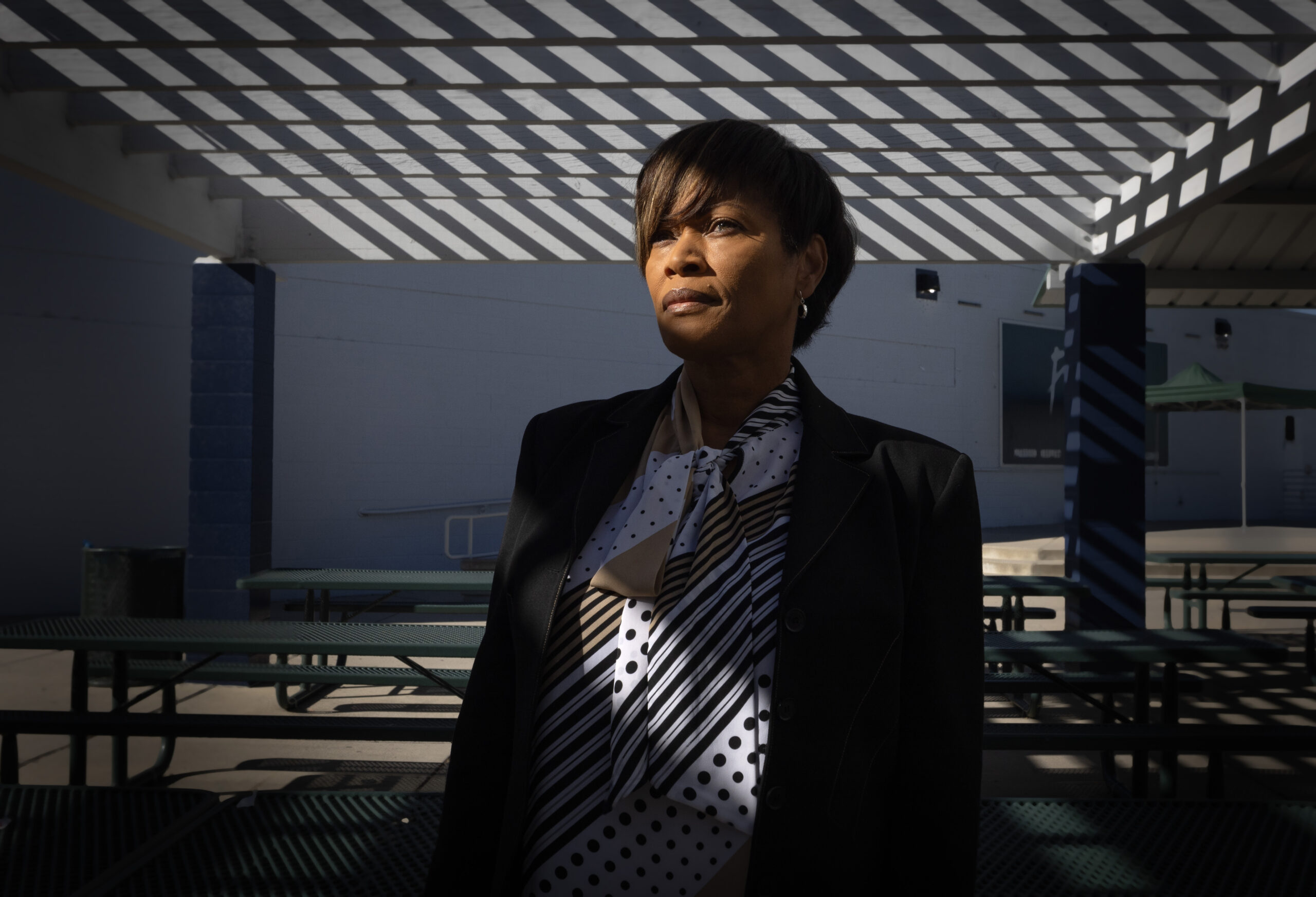
Since Shayla’s time at the school, the curriculum had evolved in the hands of teachers, and new state requirements. Teachers adopted more material that covered Black history, as well as that of other historically marginalized groups. But that progress has been jeopardized by the board’s new directives, she said.
“The requirements for my local school board essentially require me to break the law and not teach California standards,” said Dawn Sibby, a Temecula Valley High School teacher and alumna. “What they are doing right now we will be paying for for at least two decades … it’s a scary, dystopian place right now.”
Jennifer Scharf, an English teacher at Great Oak High School, says she has worried about whether she can continue to teach the curriculum she has for years. Among the titles she now worries about using are Just Mercy, Bryan Stevenson’s account of his legal representation of low-income clients and clients of color and addressing the impacts of poverty and discrimination, and The Immortal Life of Henrietta Lacks, which shares the story of a Black woman whose cells became an important medical tool without her knowledge or consent.
“Can I point out systemic racism?” Scharf said . “All it takes is one kid to tell their parents and I’m suspended.”
In Temecula, three school board members have enacted discriminatory policies backed by conservative strategists and traveling agitators. Students, parents and residents are coming together to attempt to have them removed from office.
The school board’s flag ban, as well as the forced outing policy of transgender and nonbinary students, also led to fear among both teachers and students. Cox said that several LGBTQ+ teachers told her that they were afraid to talk about their families. Scharf said she had several students come to her classroom asking if they were safe. “The kids are afraid to be themselves,” she said. “They shouldn’t have to worry about that, especially at school.”
In August, teachers, parents and students filed a lawsuit against Temecula Unified over its ban of “critical race theory or other similar frameworks.” Lawyers at the firm Public Counsel, which is representing the plaintiffs, believe the board’s actions deprive students of culturally relevant instruction.
Eytchison said that culturally relevant instruction once used in the classroom resonated with her students. “I do notice that behavior has improved since I started teaching real history, because the kids get to hear their family stories in what we are doing in class,” she said. “Now they are connected to what we’re doing in the classroom.” Eytchison said that has changed since the new board members were elected.
The lawsuit also cites the board’s attempt to shelve a social studies curriculum chapter that focuses on the LGBTQ+ rights movement.
“The board is basically removing history from the history books based on their biases towards LGBTQ people,” said Amanda Mangaser Savage, a senior attorney at Public Counsel. “The board majority’s hostility towards LGBTQ people, there is a lot of evidence of it.” On the website for Inland Empire Family PAC, which helped fund the campaigns of the new school board members, a graphic titled “The Problem in Schools” lists “Critical Race Theory,” “Transgenderism Encouraged” and “Forced LGBTQ+ Acceptance” as issues of concern.

Savage said the resolution banning CRT is vague and predicted it will be struck down in the courts. She also said that the five elements of CRT and eight topics associated with CRT in the resolution were taken directly from former President Trump’s 2020 executive order banning diversity training for federal contractors. The order was reversed the following year by President Biden.
“There is no legitimate educational purpose for this action,” Savage said. “It’s antithetical to the First Amendment and free speech clause of the California constitution.”
The lawsuit could have an impact if the resolution is found to be unconstitutional since it could then provide a blueprint for other school districts. In the meantime, teachers on the ground in Temecula say they are struggling.
The lawsuit “can’t happen fast enough for the amount of destruction that [the new school board members] are doing,” Eytchison said.
Like other teachers, Eytchison is worried the board’s actions are affecting newer teachers. She said some new teachers have told her they would just keep their heads down and do as they are told for fear of retribution. “I’m not sure in the early stages of a new career you would take a risk,” she said.
The Temecula Valley Educators Association, the union which represents district teachers, have joined the effort to recall Komrosky, Wiersma and Gonzalez. Scharf, the high school English teacher, said that some members were concerned that joining the recall drive would lead to retaliation from the board. Weeks after teachers joined the recall movement , the board failed to adopt a state-funded cost of living adjustment for teachers. Board members Allison Barclay and Steven Schwartz voted to approve the raises but Gonzalez was absent, and Komrosky and Wiersma abstained.
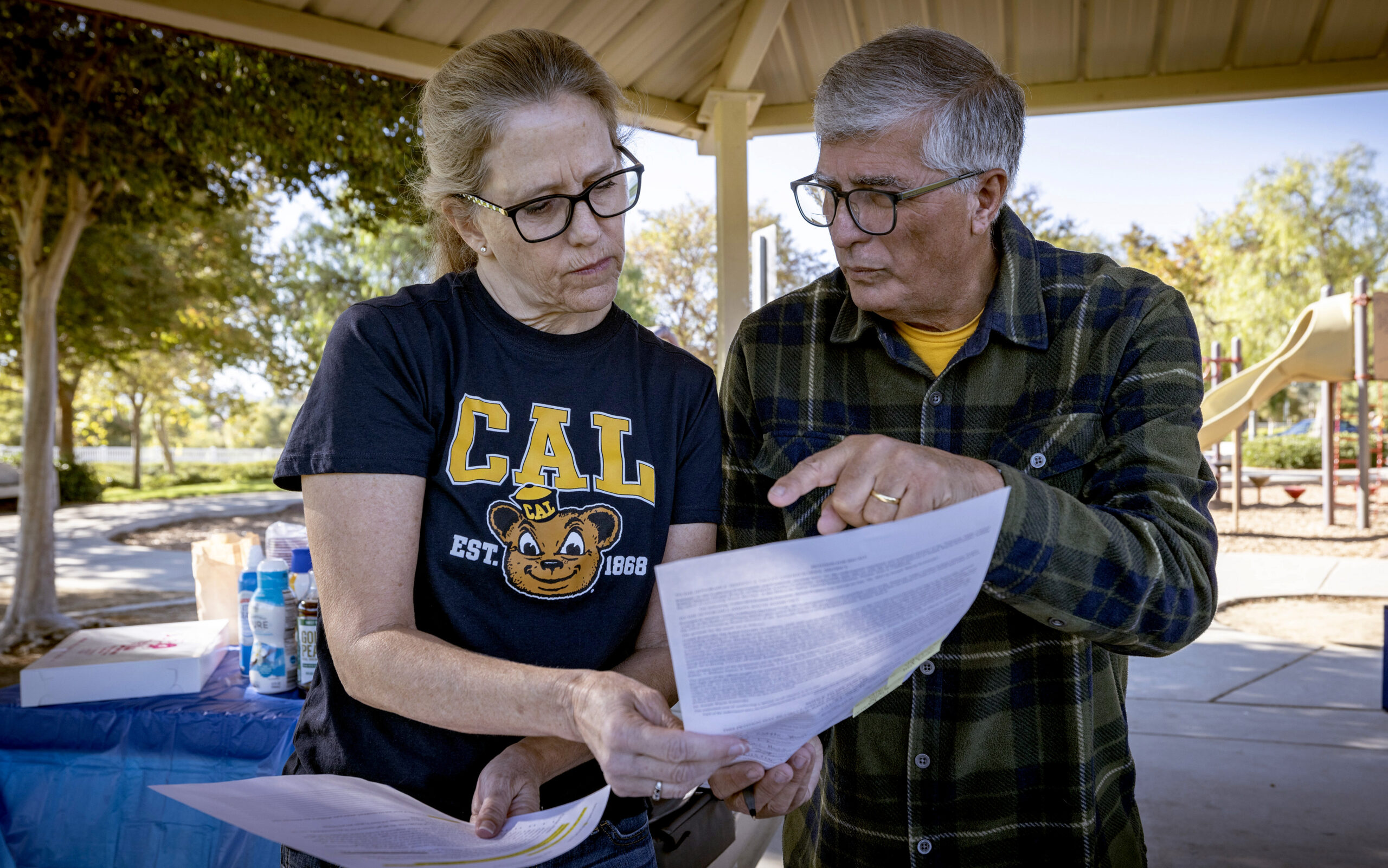
Students and teachers alike said they have been targeted by supporters of the school board’s conservative bloc. Cox said her personal information was disseminated on social media, and an op-ed detailing the history of Black people who owned enslaved people was placed in her teacher’s inbox. “I have the feeling of being on that campus and not knowing who I can trust,” she said.
Scharf said she has been doxxed twice on Instagram, and that she is harassed at school board meetings. Several school board supporters, including Komrosky’s father-in-law, told a reporter that Scharf was an agitator.
Sibby, the Temecula Valley High teacher, decided to stop posting online after Scharf was doxxed. “I used to use my Instagram and Facebook almost as a digital historian of myself for my future grandkids … But I can’t do that right now. I can’t put up pictures of my family — I don’t want them to be attacked verbally or in any other way.”
Despite her decision to stay away from social media, her husband Ed, who is an organizer with the California Teachers Association, was recently called a pedophile on a social media profile supporting the school board’s conservative members. Both Scharf and Sibby requested extra security for this year’s Back to School night.
Some are considering leaving Temecula.
Monica LaCombe, a Black resident who’s lived in Temecula for 22 years, said she realized the community was not as friendly as it appeared after seeing some of her son’s former teachers make racist comments on Facebook. “Maybe this is the reality of Temecula, maybe I had my blinders on,” she said. “To see so many people I thought understood me as a Black woman don’t, it’s very disheartening. My son is a senior. I’m thinking of putting my house up for sale the day after he graduates.”
Cox, one of the first Black teachers in the district, is not far behind her. “I want to retire early. I don’t feel that this is a place for me anymore,” Cox said. “I refuse to work in a district where I cannot be my authentic self.”
All photos taken by Barbara Davidson for Capital & Main.


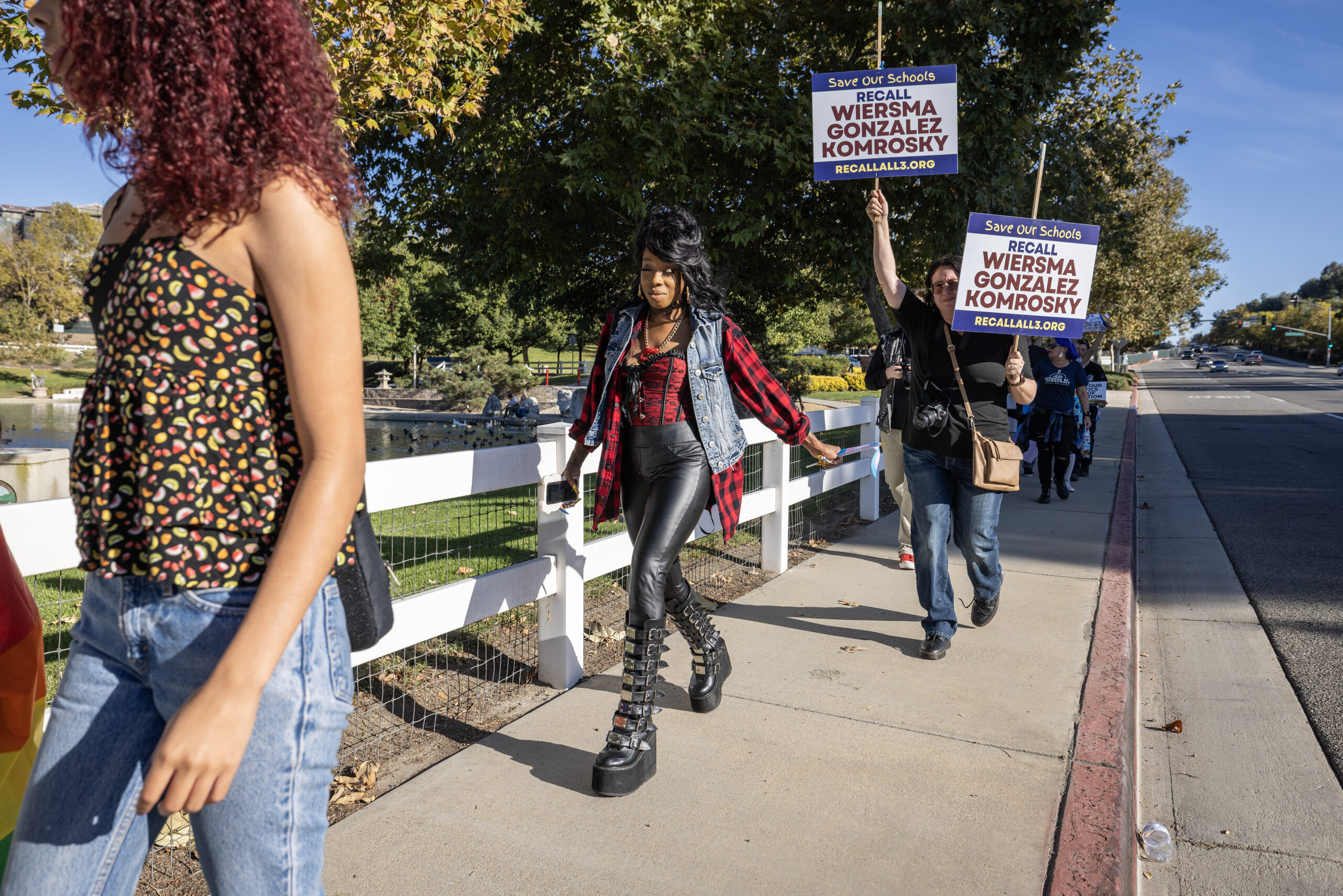

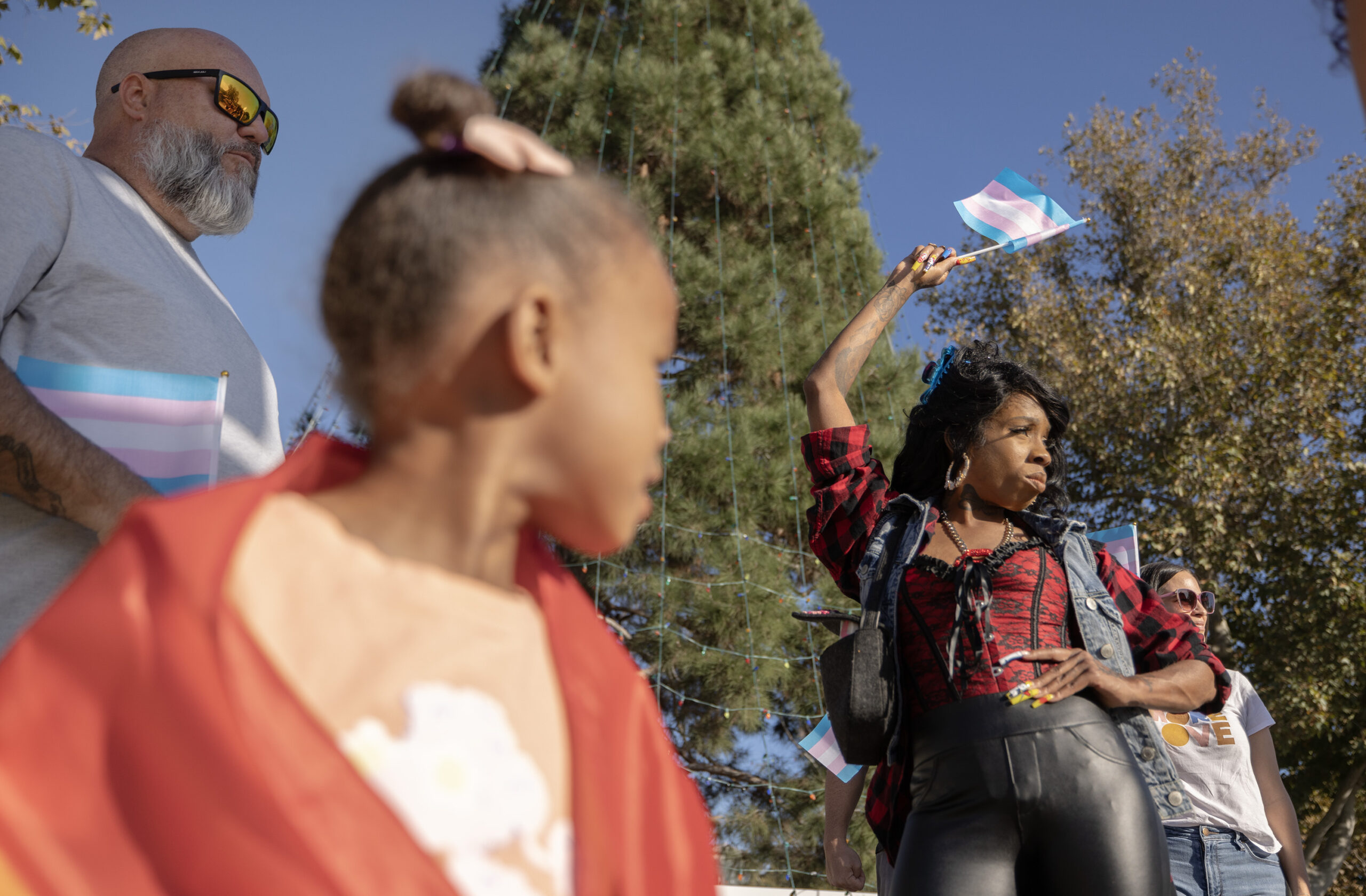
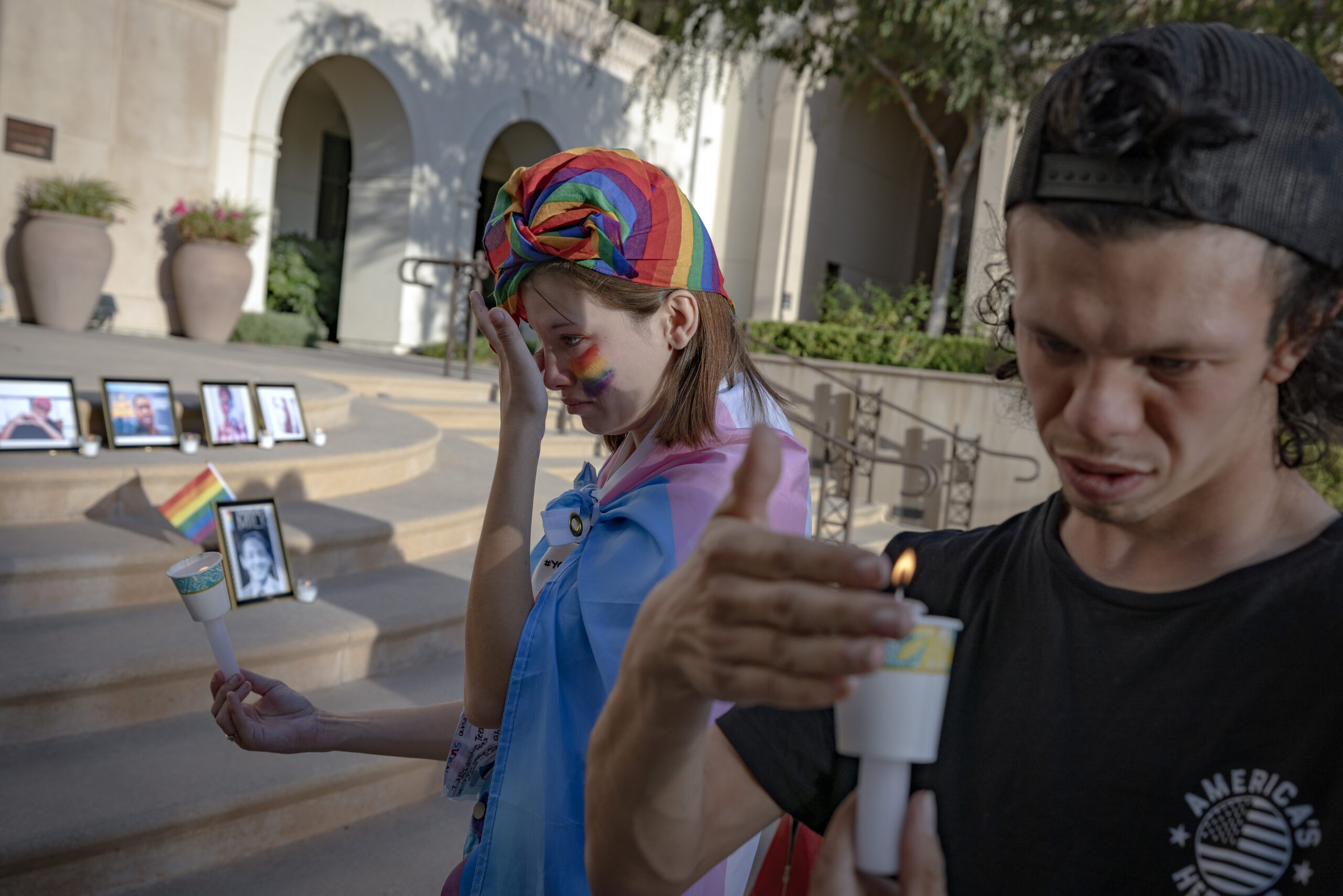



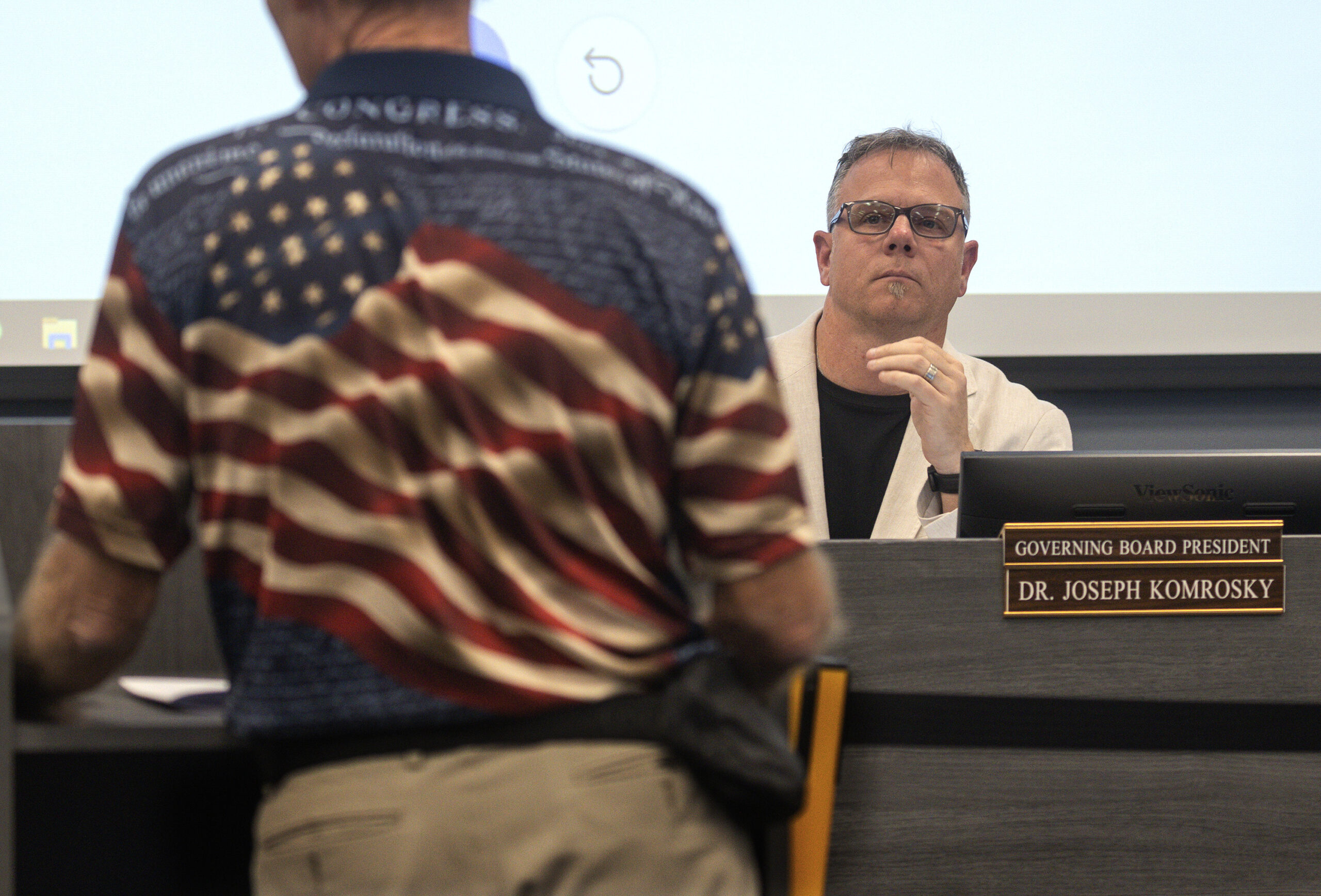

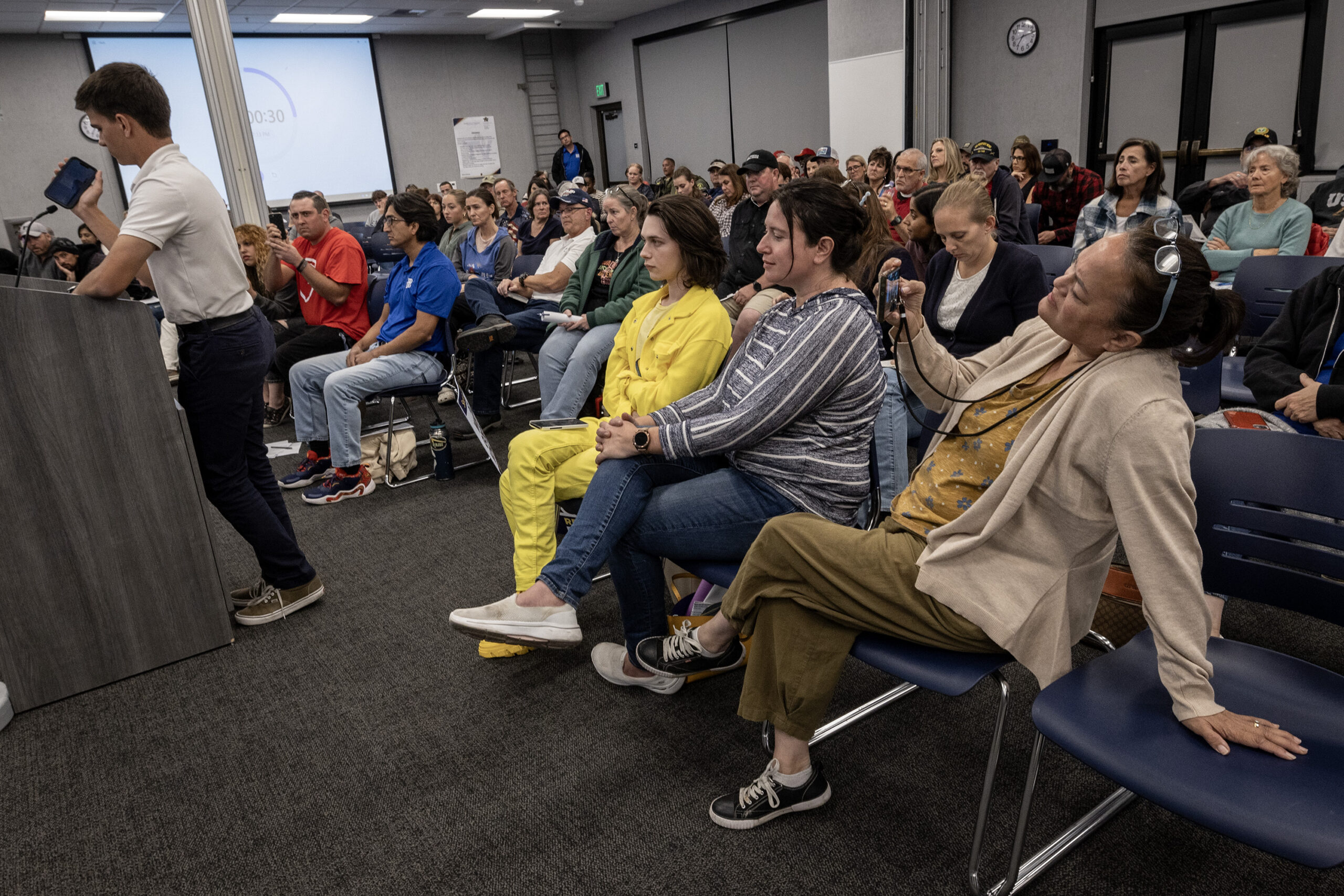


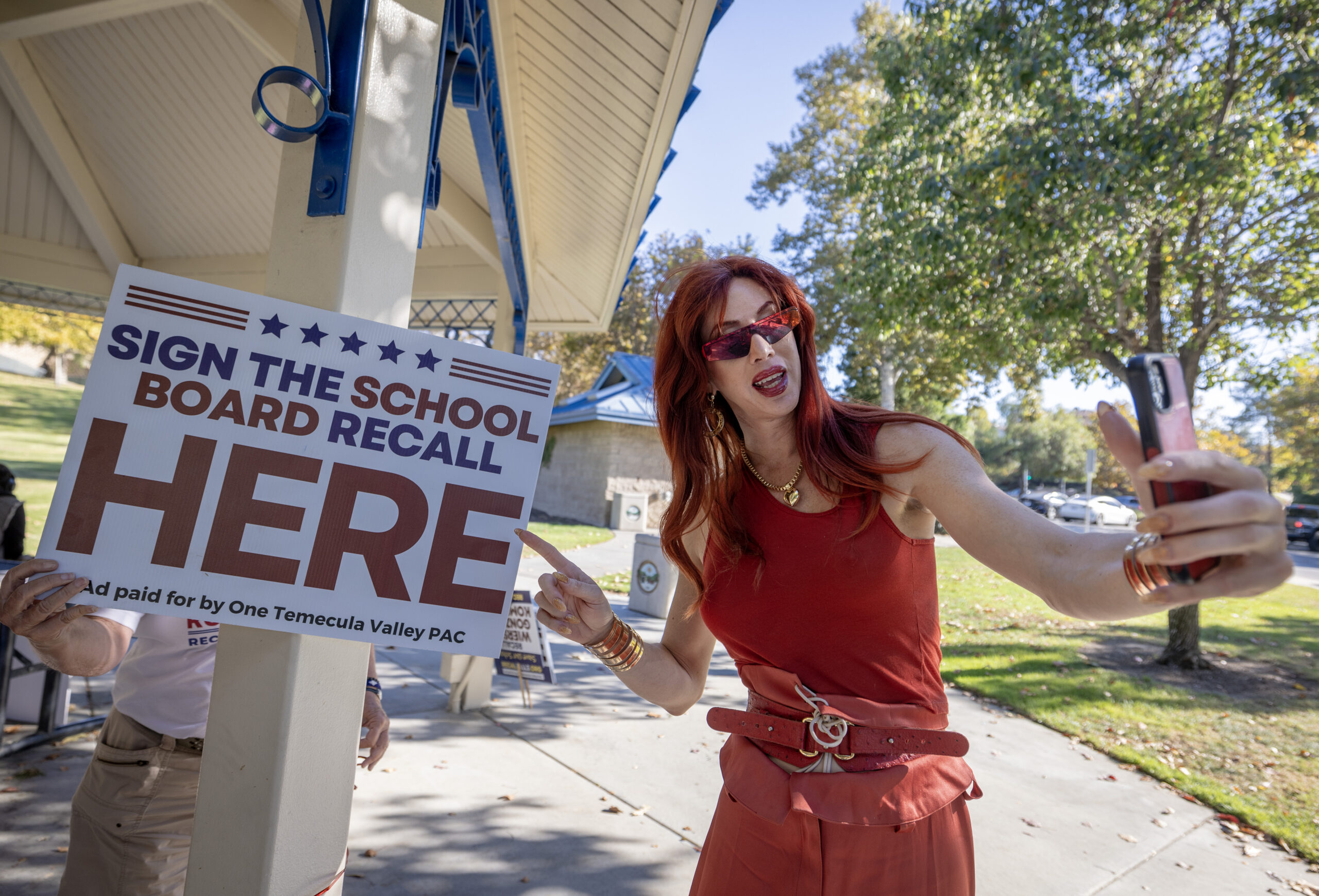
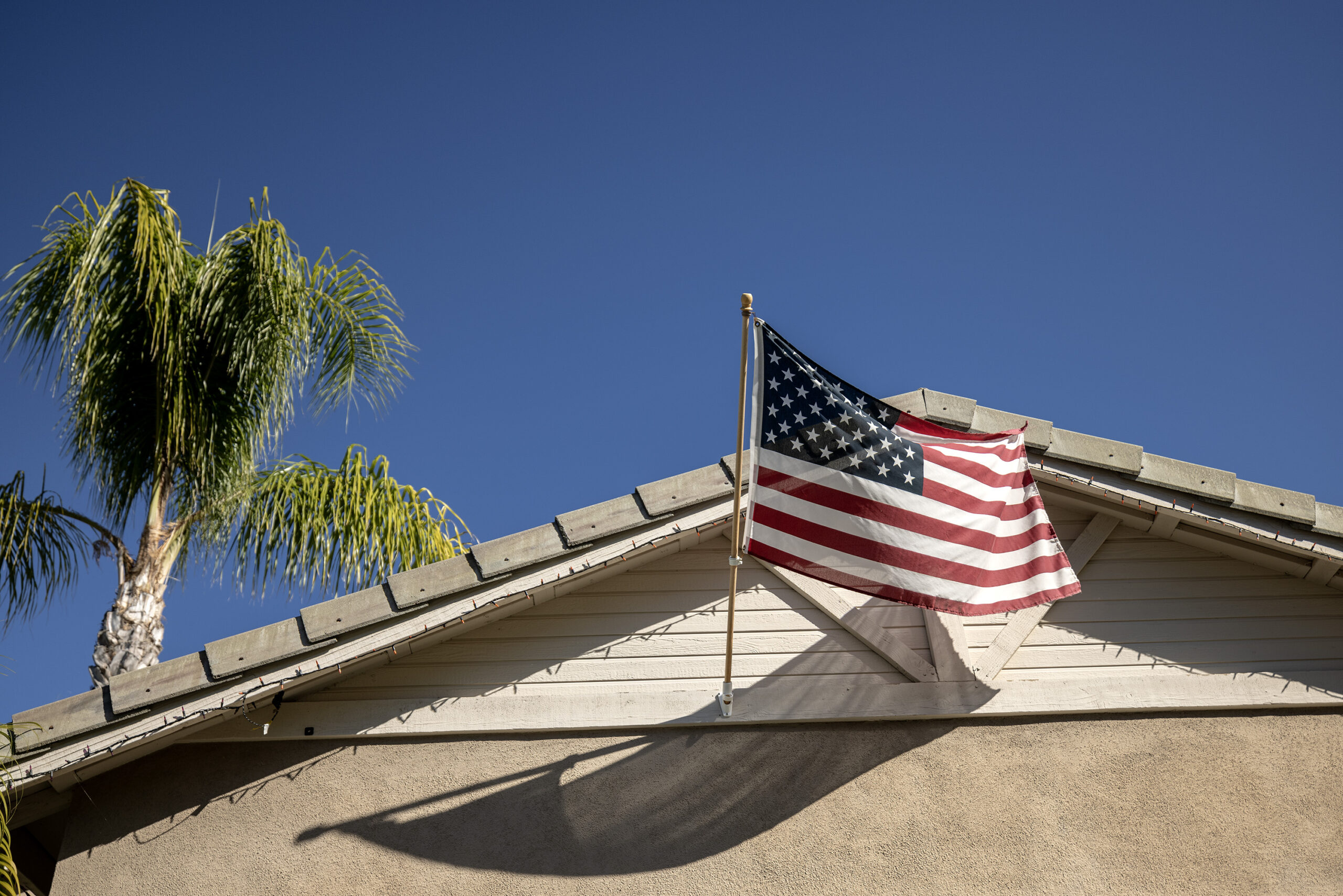
Copyright 2023 Capital & Main